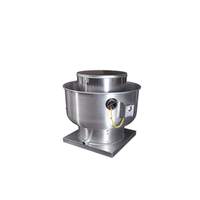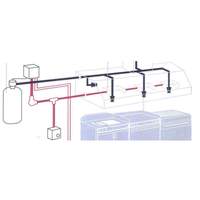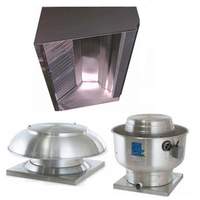Excluding the kitchen staff, it is possible that most restaurant workers or diners take the commercial ventilation system for granted - that is until it isn’t working properly!
Any food service operation, whether it's a bistro, hotel, hospital or concession stand would be coated in oily residue without a fully functioning, well-designed hood system to manage grease, odors and cooking fumes. Otherwise, staff and patrons would have an unpleasant, unsafe and unproductive environment.
Commercial Food Service Operation Ventilation Maintenance
A regular ongoing preventative maintenance program by professional service technicians is a business’s best bet to avoid costly and sudden repairs. Every business wants to avoid issues that may interfere with operations and profitability.
There are many out-of-sight areas beyond simply cleaning the exhaust that must be maintained, inspected and serviced. The key benefits of a well-maintained ventilation system are:
- Fire Prevention and less inside heat
- Extend Life of Equipment
- Optimal and Improved Air Flow/Reduction in Risk of Carbon Monoxide and Exhaust
- Realize Energy Saving
- Reduce and/or Remove Mold and Bacterial Growth
- Avoid fines
Kitchen and custodial staff should do daily ventilation maintenance that improves health and safety in the workplace. This also minimizes the amount of work necessary in the long run. Daily maintenance includes soaking filters, cleaning vents, emptying grease traps and scrubbing away grease. Staff should know how to shut the system down before doing any cleaning.
Winter and Ventilation
Kitchen ventilation is vital throughout the year, no matter the season. To continually improve circulation, the components work together to manage the output of grease. Exhaust, heat, humidity and dirt are removed from the premises creating an air exchange to continually improve circulation.
Seasonal conditions can affect a system’s functionality. Elements that can inhibit a commercial foodservice operation’s ventilation functioning properly throughout the year include:
- Snow
- Birds and their nests
- Fallen leaves
These type of things can all plug outside vents and affect the efficiency of the airflow, creating a hazard. It is important to inspect outside vents on a regular basis, especially in the winter. Be sure to brush away snow, remove fallen leaves, nest debris from birds and even the birds themselves!
During the winter months, a restaurant ventilation system needs to operate properly and efficiently. Buildings are often tightly sealed and removing internal air and creating quality circulation is vital. In winter, the natural pressure balancing effect is reduced resulting in lower air pressure inside and higher air pressure outside.
Have you ever tried to open a door to restaurant and found it stuck shut by a vacuum-like pressure? That is a sign that the ventilation is not working well and there is negative air pressure resulting in poor indoor air quality and possibly massive heat removal from the dining room.
The Importance of Make Up Air Units (especially in Winter)
Make up air units introduce fresh air into the exhaust system, reducing the amount of excess air being pulled from other parts of the building. This provides patrons with a better experience. Some units can be found on the roof of a building and in some applications they are in an internal room or built into a commercial ventilation system.
Make up air units improve efficiency and with the existing ventilation system helps to lower utility costs. They create a healthier environment for staff and patrons by reducing mold, improving air quality and keeping smells to a minimum.
The team here at ACityDiscount is always ready to answer your questions about make up air units. Contact us today to learn more!




